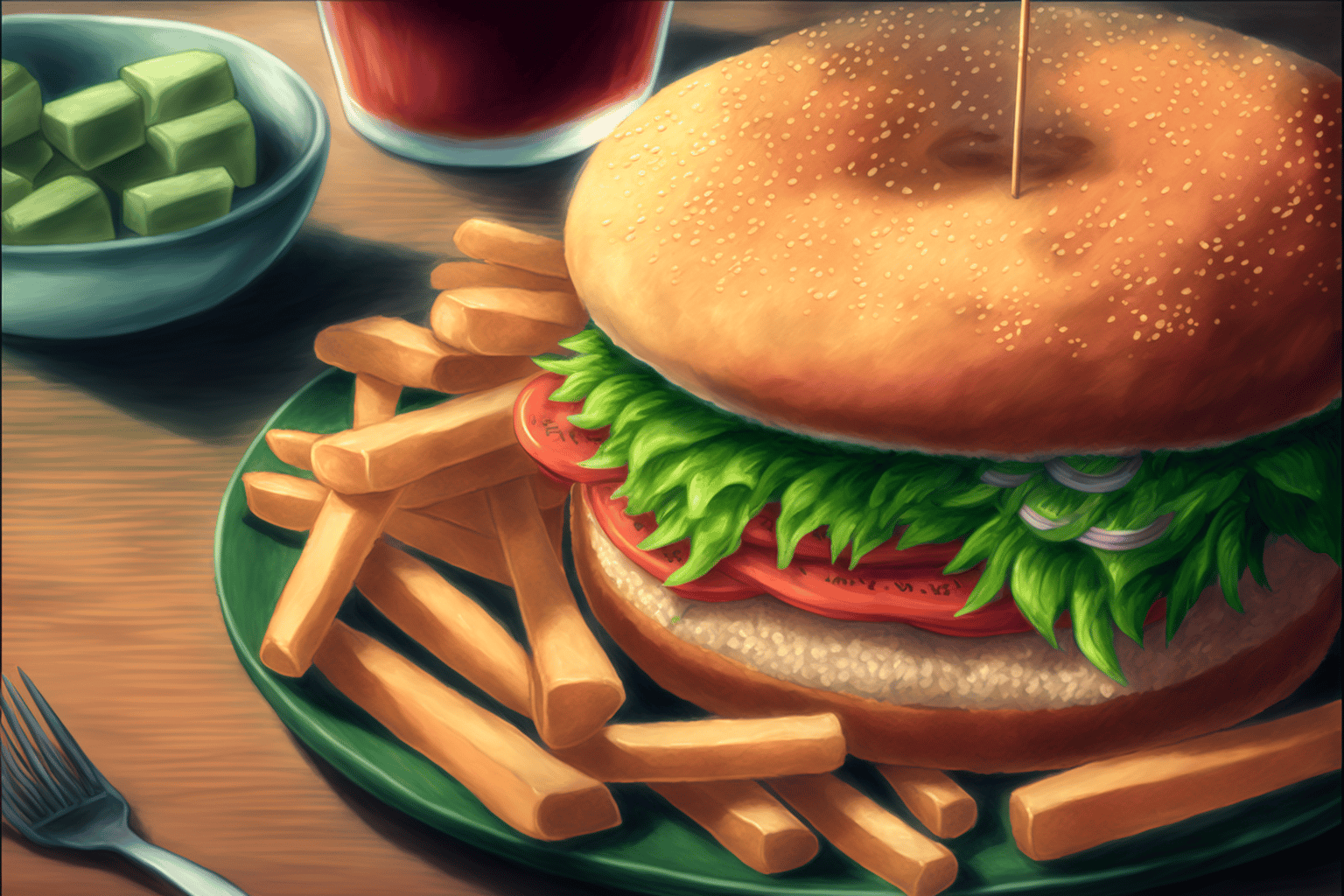Eating healthy on a budget is an attainable goal. And it doesn’t have to be expensive. While it’s true that some healthy foods can be costly, many affordable options can help you maintain a nutritious and balanced diet without breaking the bank.
Here are some tips on how to eat healthily on a budget:
Eating Healthy On A Budget – Plan Ahead
Planning meals can help you avoid impulse purchases and maximize your grocery budget. Please list the foods you need for the week, and stick to them when you’re at the store.
Planning meals in advance is an excellent way to save time and money, especially for people who work on the road. Here is a strategy that can help you plan your meals while on the go:
- Plan for the week: Take some time at the beginning of the week to plan out your meals. Think about what meals you will have for breakfast, lunch, and dinner, and make a list of the ingredients you’ll need. Consider planning for snacks and drinks to keep you fueled and hydrated throughout the day.
- Consider portable options: When you work on the road, having meals that are easy to transport and eat on the go is essential. Consider preparing meals that can be eaten cold, such as salads, sandwiches, wraps, or veggie bowls. You can also opt for pre-packaged foods such as nuts, trail mix, fresh or dried fruits, or protein bars.
- Use cooler bags and containers: To keep your food fresh and safe, invest in insulated cooler bags and containers. These will help keep your food at the right temperature and prevent it from getting spoiled.
- Cook in batches: If you have downtime during the week, consider preparing meals in batches, such as soups, stews, or casseroles. You can then pack them into individual containers and refrigerate or freeze them for later use.
- Be flexible: Be prepared to adapt your meal plan depending on your schedule and availability. For example, if you’re running late, you should grab a quick meal from a convenience store or a drive-thru. When this happens, choose the healthiest options, such as salads or grilled chicken sandwiches.
- Stay hydrated: Remember that it’s always worth drinking enough water when you work on the road, so pack a water bottle and refill it throughout the day. You can also include hydrating foods such as watermelon, cucumbers, and celery in your meal plan.
Planning your meals ensures healthy, satisfying, and affordable options while working on the road. Remember to be flexible and adapt to changing circumstances, and you’ll be able to maintain a balanced and nutritious diet no matter where you go.
Buy In Bulk
Buying staple foods like rice, beans, and nuts in significant quantities can be a cost-effective way to add healthy foods to your diet.
Buying in bulk can be cost-effective for anyone, including single people, especially regarding non-perishable goods. Here are some reasons why:
- Cost savings: Buying in bulk typically lowers the price per unit than purchasing individual items. You put money back in your pocket because buying in larger quantities reduces packaging and transportation costs for the retailer, which can translate to lower prices for the consumer.
- Reduced packaging waste: Buying in bulk also helps to reduce packaging waste, as you can often bring your reusable bags or containers to fill up at the store. It may take a few extra moments, but it can help to reduce your environmental footprint and save money on packaging costs.
- Convenience: For single people, buying in bulk can be incredibly convenient because you’ll have the products you need on hand when you need them without having to make all too frequent trips to the store.
- Extended shelf life: Many non-perishable goods have a long shelf life, meaning buying in bulk can be a fantastic way to stock up on essentials that will go smoothly. Having extra food on hand can help you save money over the long haul by avoiding purchasing the same items multiple times.
Some examples of non-perishable goods that can be good to buy in bulk for single people include rice, pasta, canned beans, nuts, seeds, dried fruits, and non-perishable snacks.
It’s important to note that buying in bulk requires some planning and organization to make the most of your purchases. Be sure to store your items properly to extend their shelf life, and make a meal plan to ensure you’re using them before they go bad. By doing so, you can enjoy the cost savings and convenience of buying in bulk while minimizing waste and maximizing value.
Choose in-season produce: Buying fruits and vegetables that are in season can help you save money, as they are often less expensive than out-of-season produce.
Cook At Home

Discover the joys of cooking at home
Preparing your meals at home is a top and underused way to save money, as restaurant meals are typically more expensive and less healthy.
Cooking at home can be a wonderful experience for people who have never cooked or do so infrequently. Here are some of the wonders of cooking at home:
- Better Health: Cooking at home allows you to control the ingredients in your meals. That’s awesome because it means you can create healthy, nutritious meals free from processed foods, additives, and preservatives. By cooking at home, you can also control portion sizes, which can help you maintain a healthy weight.
- Cost Savings: Cooking at home can also help you save money. Restaurant meals and take-out food can be expensive and often have added costs such as taxes, tips, and delivery fees. Cooking at home allows you to buy ingredients in bulk and make meals that last for several days, which can help you save money on groceries and eating out.
- Creativity: Cooking at home is a great way to get creative with your food. You can experiment with different recipes, try new flavors, and develop your cooking skills. You can also customize your meals to your liking, adding more or less spice, adjusting the salt content, or using different types of protein or vegetables.
- Family Time: Cooking at home has always been a fantastic way to spend time with your family or roommates. You can involve them in cooking, allowing everyone to participate and learn new skills. Spending quality time together builds stronger relationships and creates lasting memories.
- Relaxation: Cooking at home can be a relaxing activity that allows you to unwind after a long day. It can be a meditative process that will enable you to focus on the immediate task and forget other life stresses.
Overall, cooking at home can be a wonderful experience with many benefits. It can help improve your health, save money, encourage creativity, provide opportunities for family time, and promote relaxation. If you’re new to cooking, many resources are available to help you get started, such as online recipes, cooking classes, and instructional videos.
Stock Up on Frozen or Canned Fruits and Vegetables

The nice thing about frozen and canned fruits and vegetables is they are a convenient and cost-effective way to add healthy foods to your diet, especially when new options are unavailable or too expensive.
Buying frozen or canned fruits and vegetables can be a great way to save time and money while still getting the nutrition that you need. Here are some of the reasons why:
- Convenience: Frozen and canned fruits and vegetables are often pre-washed, pre-cut, and ready to use. That shortcut will save you time and effort in the kitchen, as you don’t have to wash, peel, and cut fresh produce. You can open the package or can and use the fruits and vegetables as needed.
- Longer Shelf Life: Frozen and canned fruits and vegetables have a longer shelf life than fresh produce. Having food on hand longer means you can stock up on your favorite items when they’re on sale and use them later on without worrying about them going rancid. Buying frozen and canned fruits and vegetables will help you save money on groceries by buying in bulk or taking advantage of sales.
- Cost Savings: Frozen and canned fruits and vegetables are often less expensive than fresh produce, especially when out of season. That’s great for the months when you might get the nutrition you need while staying within your budget without this option.
- Nutritional Value: Frozen and canned fruits and vegetables can be as nutritious as fresh produce. The value is sky-high because farmers often pick them at their peak ripeness, and they’re immediately frozen or canned, which locks in their nutritional value.
- Versatility: Frozen and canned fruits and vegetables are valuable in various dishes, including smoothies, soups, stews, and casseroles. You can also use them as a side dish or a quick and easy snack.
While fresh produce is always a great choice when available and affordable, buying frozen or canned fruits and vegetables remain one of the best ways to save time and money without sacrificing nutritional value or taste, so the next time you’re at the grocery store, consider picking up some frozen or canned produce to keep on hand for quick and easy meals.
Serve Meat as A Side Dish

Try a delicious non-meat burger
Serve meat as a side dish: Meat can be expensive, but you can still include it as one of your side dishes rather than the main course.
Cutting back on meat can benefit your budget and health in many ways. Here are some reasons why:
- Cost Savings: Meat can be expensive, and cutting back on it can help you save money on groceries. Plant-based proteins, especially traditional ones such as beans, lentils, and tofu, are often less expensive than meat and can be used in various dishes.
- Health Benefits: Eating less meat can have many health benefits, including reducing your risk of heart disease, stroke, and some types of cancer. Plant-based diets are also associated with lower rates of several conditions, including obesity, type 2 diabetes, and high blood pressure.
- Sustainability: The production of meat has a significant environmental impact, including greenhouse gas emissions, deforestation, and water pollution. Eating less meat can help reduce your carbon footprint and support sustainable agriculture.
- Variety: Cutting back on meat can also encourage you to try new foods and recipes, adding variety and excitement to your meals. It can also help you discover new favorite plant-based proteins and vegetables.
- Animal Welfare: Choosing a vegan or vegetarian lifestyle can be a way to express your concern for animal welfare. By avoiding meat and animal products, you can help reduce the demand for factory farming and the suffering of animals.
In conclusion, cutting back on meat can be a great way to save money, improve your health, support sustainable agriculture, and reduce animal suffering. Try veganism or vegetarianism to see if it fits your lifestyle and values well. If you need more time to make a complete switch, consider incorporating more plant-based proteins and vegetables into your diet to reap some of the benefits of a plant-based diet.
Reduce food waste: Reducing food waste by using leftovers and buying only the items you need can help you save money and make the most of your groceries.
Reducing food waste is an essential practice for several reasons. Here are four reasons why it matters:
- Environmental impact: Food waste has a significant environmental impact. When you toss food away, it ends up in landfills, decomposing and releasing methane, a potent greenhouse gas contributing to climate change. Reducing food waste can help reduce the amount of methane produced and can help protect the environment.
- Economic impact: Food waste can also have a significant economic impact. When you throw away food, you are essentially throwing away money. Reducing food waste by using leftovers and buying the minimal items you need is the best way to help you save money and make the most of your groceries.
- Food security: Reducing food waste is also a foundational requirement for food security. When people waste, less food is available for those who need it. By reducing food waste, we can ensure enough food to go around.
- Ethical considerations: Throwing away food also raises ethical concerns. With so many worldwide facing food insecurity, wasting food can be considered morally wrong. By reducing food waste, we can help address these ethical concerns and ensure everyone can access the nutrition they need.
Reducing food waste is a critical practice that can help protect the environment, save money, promote food security, and address ethical concerns.
By using leftovers, planning meals, and buying only the food items you truly need, you can help reduce the amount of food that goes to waste and make the most of your groceries.
Overall, eating healthy on a budget is doable with planning and mindful shopping. You can maintain a healthy diet without spending much money by making intelligent choices and prioritizing nutrient-dense foods.








